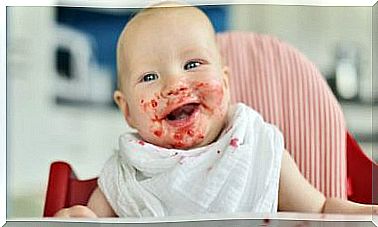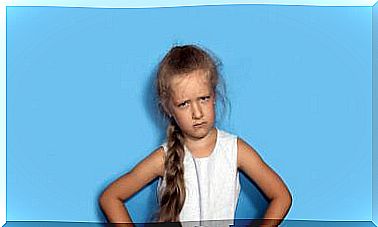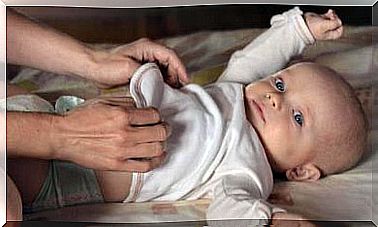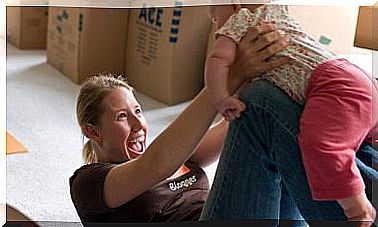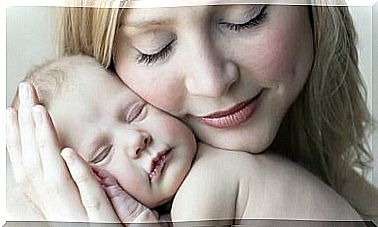Dealing With Children’s Jealousy
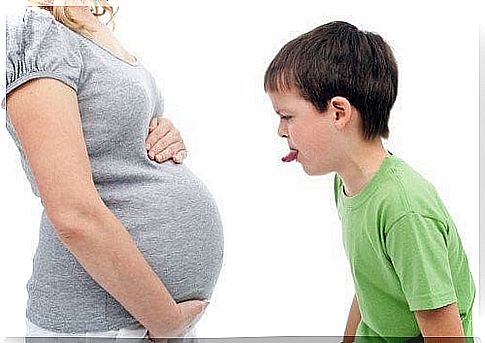
Jealousy in children is inevitable and absolutely normal. At some point in childhood, either due to the arrival of a baby brother, changes in the family structure or going through the phase of falling in love with a father, the little ones experience this feeling. But how to deal with the jealousy of children?
Clearly, dealing with children’s jealousy is complicated since it is a contradictory feeling in that it manifests itself with more virulence the more the attachment figure is loved and, in parallel, the more abandonment is perceived on its part.
The jealousy of children is a natural feeling of infants when they feel displaced, so they express their hatred and rejection of those people they are fond of. In this article we teach you how to handle the situations that generate childhood jealousy.
Jealousy of children: How does it originate?
Children’s jealousy can be generated by various factors : the arrival of a new sibling in the family, when another child draws the attention of their parents, when the head of the single-parent family has a new partner, or when the child has to share the love of mom or dad during their crush.
In this way, the little ones see the attention stagger from their physical and emotional dependence towards their parents, who must take care of them and raise them. In other words, children see the constant support and attention they need during the first years of life at risk.
That is why, when any situation or circumstance implies a reduction in the time, affection or dedication of their parents, the children’s jealousy arises. Simultaneously, the child feels obliged to compete for that affection that until now had been granted unconditionally.
At what age does childhood jealousy appear?
Jealousy in children can appear at any age during childhood, but its demonstration is different. When the child is less than two years old, these manifestations go unnoticed, since the little one will be submissive, obedient and excessively affectionate.
Now, as boys grow older, childhood jealousy begins to show itself in a more exaggerated way, that is, through abrupt aggressive and disruptive behaviors. Even, from the age of 5, they can become emotionally manipulated by withdrawing affection from those who have “abandoned” them.
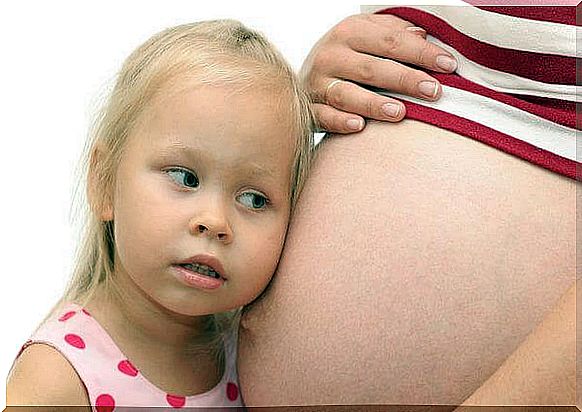
How is the jealousy of children manifested?
Childhood jealousy usually manifests itself through aggressive behaviors: hitting, biting, pinching, are some of the techniques that children use to express the fear and anguish generated by competing for the love of their parents.
However, it may happen that children appeal to behaviors that attract the attention of their parents, such as expressing themselves only with yelling, hitting objects to make noise, doing what is prohibited or disapproved of at home, seeking the anger of others. older, etc.
Other manifestations of childhood jealousy
- Unjustified mood swings.
- Frequent crying for no reason accompanied by the confession of not feeling loved.
- Appearance of new unusual behaviors (urinating, lack of appetite, etc.).
- Regression with an involution in body language and expression (thumb sucking).
- Alterations in the stages of sleep (insomnia, night waking, etc.).
How to deal with jealousy of children?
The first step in dealing with children’s jealousy is knowing what is causing it, which changes our attitude to their displays of jealousy. Well, that way it will be possible to put ourselves in their place and understand that we are facing a creature that is thus defenseless and vulnerable.
At this point, it is essential to differentiate between the sudden appearance of jealousy in children and a jealous personality. In the first case there is the irruption of some new element in the life of the child, while in the second the child has a certain predisposition to suffer them.
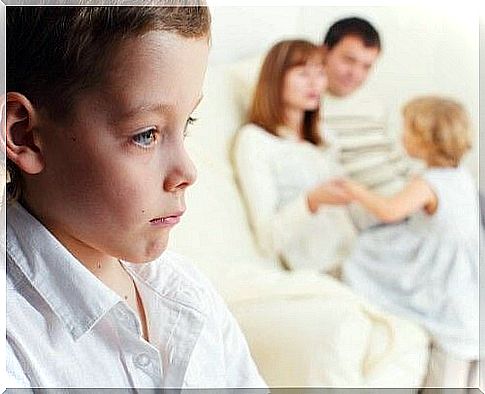
For this reason, many specialists recommend that the child be allowed to express what he feels, as long as he does it in an appropriate way and without causing damage. Ideally, approach your child to let him know that we understand him and that there are other ways to express himself.
However, experts advise going to a professional in case the episodes last for a long time or if the child’s reactions are excessive, to the point of deteriorating family relationships.
Additional tips for dealing with childhood jealousy
- Establish a balance in the treatment of your children so that no one perceives preference or makes comparisons.
- Praise for their successes prevail over challenges for their mistakes.
- Spend more time in family activities and games to bond.
- Handle yourself calmly in the face of children’s jealousy. Express your disappointment at their behavior.
- If the jealousy is caused by a younger sibling, remind the little one of the advantages and privileges of being older.
